Text
beta server stress test going on so we are now the beatles

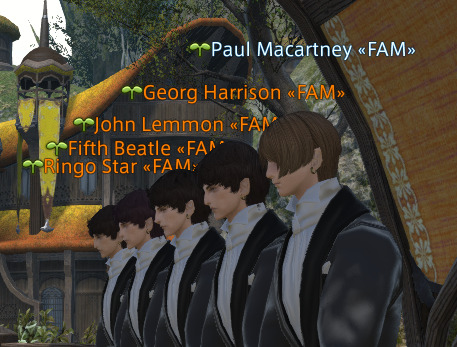
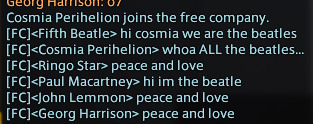

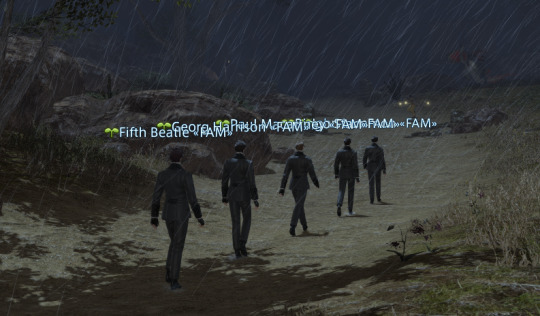




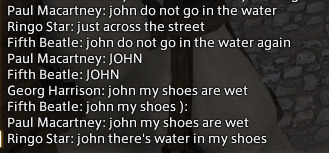

51K notes
·
View notes
Text
Vietnamese Written Practice: Interest In Vietnam
Following a prompt give about my interest in Vietnam, where I first learned about it & what's got me interested in it, I wrote the following (translation to follow):

Khi anh đi Việt Nam anh muốn làm nhiều điều như đi du lịch ở Saigon và Châu Đốc. Anh muốn nhìn thiên nhiên, con người, ngôi đền, Kurisu san (một người bạn), núi Sam và nhiều nữa.
Anh đầu tiên đã học về Việt Nam khi anh đã là đứa trẻ và ở trường. Anh đã học về lịch sử của Việt Nam trong lúc chiến tranh với nước Mỹ, nhưng khi anh đã học xong ở trường anh muốn đi du lịch ở Việt Nam nhưng anh đã nghèo và anh đã đi học ở đại học. Vậy trong lúc dịch bệnh COVID anh nghĩ về đi du lịch và anh xem nhiều video YouTube về Việt Nam và anh nhớ anh đã muốn đi du lịch ở Việt Nam nên anh đã nghĩ “fuck it let’s do it” và làm kế hoạch để đi đến Việt Nam và học ngôn ngữ.
Khi anh học nữa về Việt Nam anh yêu thiên nhiên, người, món ăn và ngôn ngữ của nó. Anh cũng là người đạo Phật nên anh muốn nhìn nhiều ngôi đền và hiểu các điều về đạo Phật ở Việt Nam.
Anh cũng học nữa về lịch sử Việt vì anh học về chiến tranh với nước Mỹ và anh muốn hiểu góc nhìn của Việt Nam về nó, nhưng anh cũng học nữa về lịch sử Việt ngoài chiền tranh vì anh nghĩ Việt Nam có nhiều điều học về.
Khi anh học nũa về Việt Nam anh nghĩ món ăn Việt nhìn ngon qúa nên anh thử nấu ăn nó vì anh không có nhà hàng Việt gần anh và anh nghĩ nó ngon quá nhưng anh nghĩ món ăn ở Việt Nam sẽ ngon hơn món ăn của anh. Anh muốn thử phở, bún bò Huế, bún thịt nướng, bánh mì vân vân. Anh cũng muốn học nấu món Việt. Anh thích nó vì nó ngon quá và khỏe và anh nên ăn khỏe hơn.
When I go to Vietnam I want to do many things like travel in Saigon & Chau Doc. I want to see nature, people, temples, Chris-san (a friend), Mount Sam and much more.
I first learned about Vietnam when I was a child in school. I learned about Vietnamese history during the war with America, but when I finished school I wanted to travel in Vietnam but I was poor & went to University. So during the COVID pandemic I thought about traveling and saw many YouTube videos about Vietnam and thought “fuck it, let’s do it” and made plans to go to Vietnam and learn the language
When I learn about Vietnam I loved its nature, people, food & language. I also am a Buddhist so I want to see many temples and understand things about Buddhism in Vietnam
I also learn more about Vietnam’s history and learn about the war with America and want to understand Vietnam’s perspective about it, but I also learn more about Vietnamese history outside of the war and think Vietnam has a lot more to learn about
When I learn more about Vietnam I think its food looks super delicious so I try to cook it because I don’t have a Vietnamese restaurant near me and I think it#s delicious but I think food in Vietnamese will be more delicious than mine. I wany to try Pho, Bun Bo Hue, Bun Thi Nuong, Banh Mi etc. I also want to learn to cook Vietnamese food. I like it because it’s very delicious & healthy and I should eat more healthily
1 note
·
View note
Text
List Of Mongolian Language Learning Resources
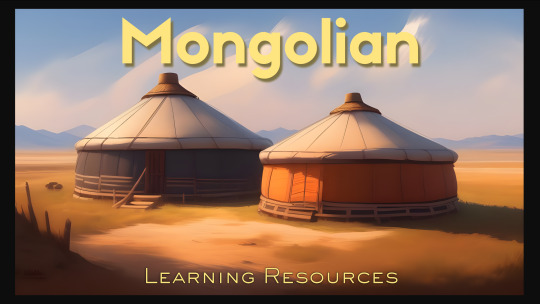
Apps
Memrise
Ling
Clozemeister (not yet supported, but coming)
Glossika
iTalki (find an affordable tutor)
Tandem (practice with speakers)
Hello Talk (practice with speakers)
YouTube
Nomin Ger
Learn Mongolian with Zaya
Online Resources
Nomin Ger's Website (free learning resource)
Uuguul (incoming course, will teach Mongolian script too)
News.mn (news site, supports Mongolian script)
Book.mn (bookstore)
Bookstore.mn (eBook store)
Voo.mn (like Netflix, but for Mongolian shows & movies)
Books
Colloquial Mongolian
Phrasebook & Dictionary
6 notes
·
View notes
Text
Tuvan Language Log #2
Today, I am recapping on Tuvan cases. Tuvan has a total of 7 cases. Cases modify nouns to signal their purpose within a sentence. In Tuvan the 7 cases are nominative, genitive, dative, accusative, locative, ablative & directive.
Nominative is the default case of any noun.
Genitive indicates possession, eg. "the dog's house" and "hair of the dog".
Dative refers to an indirect object that receives an action. Eg. "We gave tuna to the cat" where the indirect object is the cat.
Accusative is like the dative case, except it's direct. Eg. "the dog ate the curry" where the curry is the direct object.
Locative denotes the relative location, we'd use 'in' and 'on' in English. For example, "there is a dog in the basket".
Ablative Case marks a motion away from a location or object, like "from" in English. Eg. "I walked away from the house".
Directive has 2 forms but expresses a motion to or towards a location, eg: "to the house" and "towards the house".
To give some examples for each in Tuvan:
Инек - cow (nominative)
Инектиң - of the cow (genitive)
Инекке - the cow (dative, receiving an action)
Инекти - the cow (accusative, receiving an action)
Инекте - in the cow (locative)
Инектен - from the cow (ablative)
Инекче - to the cow (directive 1)
Инективе - towards the cow (directive 2)
The suffixes used will vary depending on the letter they attach to & vowel harmony.
Eg. The word above is "inek", meaning cow. The vowel is 'e' and 'i' is the correct vowel for vowel harmony, so the vowel used in the suffix has to be 'i'. And the first letter of the suffix will depend on the preceding letter and for the genitive case, we have 3 choices, "-tiŋ", "-diŋ" and "-niŋ", but because the last letter of the word is "k", it means we used "-ting", hence the genitive case of "cow/inek" is "inektiŋ".
So I think an example could be.
"Inektiŋ čemni saktyr men" "Инектиң чемни сактыр мен" "I remember the cow's food"
And breaking it down. "Inektiŋ" is genitive, so what follows is something the cow possesses, which in this case is "food", however, because my 'remembering' is acting on said 'food' then the food or 'čem' should be accusative, so it would be: "čemni"
This is how I interpret how these rules work. However, at this stage, I figure there may be elements I get wrong, the aim is to learn enough of the grammar to have a basic understanding of it so I can understand what I hear spoken or see written. What I can correct will come though listening to the language & where I can, practicing it with others.
1 note
·
View note
Text
Tuvan Language Log #1
I have been off and on trying to learn the Tuvan language, but having put a priority on my Vietnamese language learning, it has fallen to the wayside, so in an effort to get into a regular habit, I am keeping a lot and going back to the start.
But first, what is Tuvan? It is Siberian Turkic language from the Republic of Tuva, which is in the Russian Federation and was briefly its own independent state. It borders Mongolia and has a shared culture and history, though it has its own identity and language. Although the Tuvan language isn't related to Mongolian it has many influences from it. Tuvan populations are also found in Mongolia and China.
Why am I learning it? I have an interest in nomadic cultures around the Eurasian steppe and also in their music, singing, and stories. Plus, it is an interesting language to learn.
For a taste of the language, see the video below.
Some details about the language:
It is agglutinative
Has 7 cases (Nominative, Genitive, Dative, Accusative, Locative, Ablative, Directive)
Uses vowel harmony
Uses verb conjugation
Has no grammatical gender, not even on pronouns
It has an SOV word order (Subject Object Verb)
And here are a few basic phrases in the language (transliterated):
Mendi - Hello
Mendi Chaagay - Greetings
Ekii - Good morning/day/afternoon/evening
Eki udungar - Good Night
Bayrlyg - Goodbye
Eki tur siler be? - Are you well?
Siler kayi hireh siler? How are you?
Iye - Yes
Chok - No
Eves - Not
Men eki tur men - I am well
Men eki eves tur men - I am not well
Men shoolug eves tur men - I am so-so
Chettirdim - Thank you
Meeng adym... - My name is
Silerning adyngar kymul? - What is your name?
Oong ady... - His/her name is...
Deergi - Mr/Mrs
0 notes